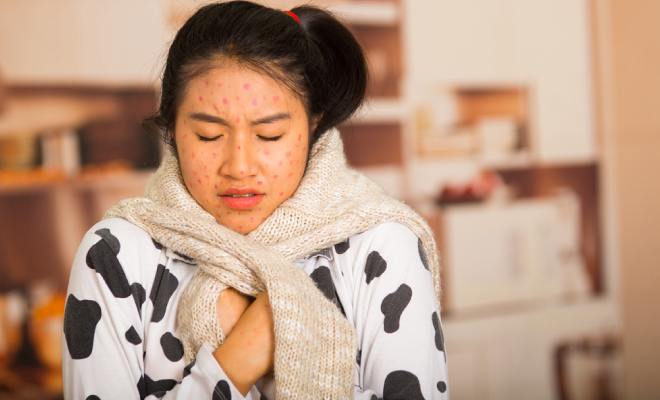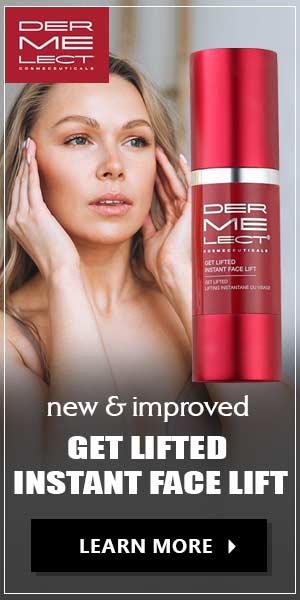Acne is and probably will always be the leading cosmetic and dermatologic skin problem. Although it is so common, many people still do not understand the more serious risks and conditions that it may lead to.
Nodular acne is even worse. It is a type of acne that’s bigger and more painful than the usual pimples, whiteheads, or blackheads. Because of its nature, it can affect a person’s confidence, mood, and behavior.
Fortunately, several management and treatment methods are available. For more information about this skin condition and how it can be prevented and controlled, keep reading the next sections of this article!
Is nodular, cystic, and severe acne the same?
Nodular acne, also called nodulocystic acne or cystic acne is a severe type of acne characterized by large, painful, and inflamed breakouts. Some dermatologists also consider these as a different type of acne blemishes.
What Is Nodular Acne?
Acne nodules affect the deeper skin layers and are larger and more serious than a usual pimple. Unlike regular pimples that relatively heal quickly, they also tend to persist for a long time, sometimes even lasting even for months.
Nodular acne blemishes feel like hard bumps, lumps, or knots under the skin. In some cases, these bumps may develop a white head. However, they more commonly stay stubbornly seated underneath the skin’s outer layer.
The main areas affected by nodular acne are the face and back, but it can also occur on other parts of the body such as the neck, chest, upper arms, shoulders, and buttocks, ranging from just a few breakouts to more widespread blemishes.
Either way, severe scarring can happen so make sure you have your zits checked and treated by your dermatologist.
Related: Acne And Its Type: How Does Acne Affect Women And Know Their Types
Causes of Nodular Acne:
The first thing to ask to understand the cystic acne causes is: “What causes acne?” because similar to mild acne breakouts, several factors may lead to nodular acne.
Sometimes, what started out as normal acne can progress to develop into cystic or nodular acne.
The contributing factors include the following:
- Overactive sebaceous glands or oil glands of the skin.
- An abnormal accumulation of dead skin cells inside the pores.
- Abundant growth and spread of acne-causing bacteria.
- High levels of androgen hormones that trigger excess oil production and change the chemical composition of the oil produced, making it thicker and more likely to cause pore-clogging. This also makes it a more favorable environment for acne-causing bacteria to reproduce.
- Genetic Factors: Although dermatologists and experts are still not sure why some people merely develop minor pimples while others can get severe forms of nodular acne, there seems to be a genetic factor at play. So, if your siblings or parents have or have had nodular acne, you are much more prone to getting it also.
- Age and Gender: At what age it mainly occur? Even though anyone can get nodular acne, it is far more common among young men. Young adults and teen boys typically get acne nodules on the face and body.
- Hormonal changes or imbalances associated with birth controls, pregnancy, menstruation, stress, and hormone therapy.
- Adult women also experience nodular acne breakouts concentrated around the neck, jawline, and chin. These typically get worse immediately before their monthly period.
- The use of greasy or oily, comedogenic cosmetics or acne products, lotions, cleansers, or clothing.
- High levels of humidity and perspiration.
- Some chemicals or drugs such as lithium, corticosteroids, isoniazid, and phenytoin that may lead to or exacerbate the formation of acne-like flare-ups.
On the other hand, there are numerous popular myths about the causes of acne that have already been dismissed through many scientific research and discoveries.
Some of these things that are found to be unrelated or actually do NOT cause acne are:
- Consuming greasy foods, nuts, and chocolate.
- Most other dietary choices (However, research has found associations between acne and the intake of dairy products or having a high glycemic index diet).
- Poor personal hygiene or not washing the face often enough or thoroughly enough.
- Sexual intercourse or masturbation.
What Are The Symptoms?
Most acne symptoms are familiar to us, and cystic acne is even more noticeable mainly due to its severe form and size. A person with cystic acne may also have any of the following:
- Blackheads
- Whiteheads
- Papules
- Pustules
- Cysts
- Nodules
Other Symptoms Aside From These Blemishes Include:
- Low self-esteem:
- Depression:
- Dark spots on the skin:
- Nodular acne scars:

Low Self Esteem – Image/Shutterstock
All and any form of acne can affect one’s self-esteem and mood, many admitting that this makes them feel bad about themselves.
Because of acne, some people tend to be shy and avoid being around friends. Some even miss work or school. Grades and their mental well-being may also deteriorate.

Depression – Image/Shutterstock
Acne can even cause a much deeper problem than low self-esteem. The heightened risk of psychological distress has a great impact, especially on socially sensitive individuals.
This can lead to depression and even suicidal thoughts. Studies have even proven that teens who have bad acne are more likely to commit suicide.
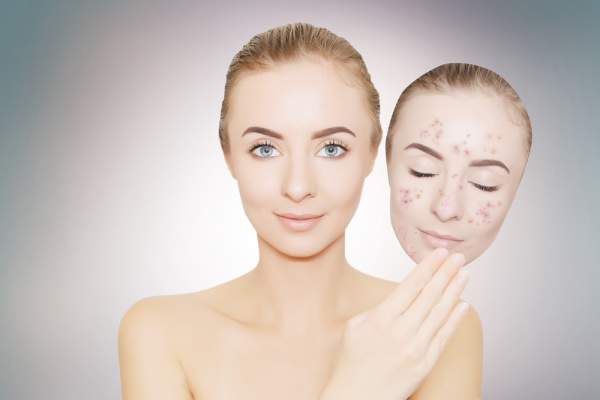
Dark Spots On The Skin – Image/Shutterstock
Aside from painful cysts, nodular acne can also cause the formation of dark spots on the skin as it heals. These spots may take many months or years to disappear.
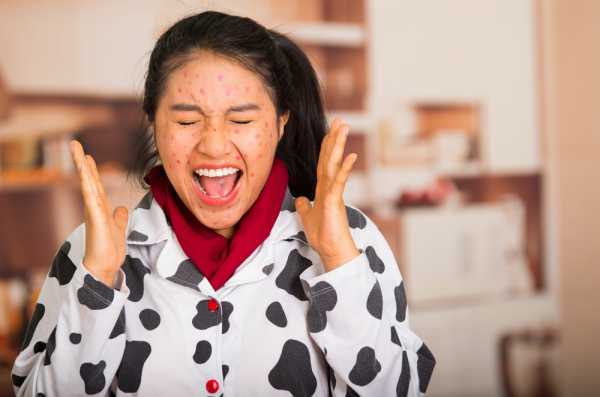
Nodular Acne Scars – Image/Shutterstock
The main problem with cystic acne is the scarring. Scars almost always form as the acne heals or after the skin clears. This can cause long-term or even permanent damage characterized by:
- Large pits.
- Ice pick scars or small, deep pits.
- Hypertrophic or red, raised scars.
- Shallow depressions.
The good news is that scars can be prevented by treating acne before nodules or cysts can even form. If you have a history of cystic acne, consult your dermatologist as soon as acne forms as early as 8 to 12 years old.
How To Prevent Nodular Acne?
Because the exact cause of cystic acne is unknown and most of the contributing factors cannot be helped, acne prevention may be very difficult or even almost impossible.
However, there are some ways that you can reduce the risk of having problems related to cystic acne which include:
- Cleanliness will greatly reduce the buildup of oil and dead skin cells that may clog your pores and lead to acne.
- Avoid tight, abrasive clothes and headgear that may cause excessive sweating.
- Be wary about the skin care products that you use. Make sure that they are gentle and non-comedogenic.

Cleanliness – Image/Shutterstock
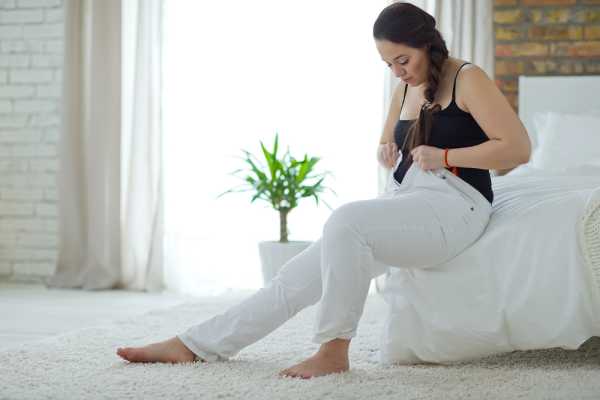
Avoid Tight, Abrasive Clothes – Image/Shutterstock

Skincare – Image/Shutterstock
Cystic Acne Management:
The American Academy of Dermatology (AAD) recommends the following tips to help manage your skin condition:
1. Wash your face and affected areas at least twice a day and after perspiring as sweat can worsen your condition.
2. Use a gentle cleanser on your skin, something that’s non-abrasive and non-causative. Avoid irritating chemicals.
3. Never scrub your skin as this can worsen pimples.
4. Regularly use shampoo, especially if you have oily hair.
5. Allow your skin to heal naturally. Avoid picking, poking, or popping nodules as this will lead to more or worse-looking scars that take longer to heal. Keep your hands away from your face to reduce the spread of bacteria.
6. Stay out of the sun. Although a tan may look healthy and make acne less visible, its effects are temporary. It can also severely damage your skin and encourage acne breakouts. Avoid tanning beds as well especially when taking anti-acne medications that make your skin more sensitive and prone to UV damage.
7. See a dermatologist if simple remedies do not work anymore.
Additional tips:
- Apply an ice pack wrapped in a clean, soft cloth a few times a day to help relieve swelling and pain.
- Do not wash too often; twice a day is enough. Use a mild cleanser or soap with lukewarm water.
- Do not use cleansers with cleansing granules, astringents, or abrasive and exfoliating agents. Invest in acne care products.
- Avoid putting on heavy makeup. Choose water-based, non-comedogenic formulations.
- Make sure to remove makeup before bed.
- Exercise regularly and drink lots of water.
- Eat a balanced diet to get necessary omega 3 fatty acids, vitamins, and minerals.
- Cleanse, tone, and moisturize the skin every day.
What Are The Treatments For Nodular Acne?
The main question asked by most of us about nodular acne is: How to treat it?
Some of the treatment options to get nodular acne under control or minimize scarring include:
- Over-the-counter acne treatments with benzoyl peroxide and salicylic acid are the best products to cure nodular acne.
- Prescription medication.
- Oral antibiotics to reduce inflammation.
- Topical acne treatment.
- Hormonal regulators or oral contraceptives for women.
- Cortisone or other steroid injections.
- Isotretinoin drug treatment.
- Detox masks.
- Laser resurfacing.
- Microdermabrasion or chemical peels and dermabrasion.
- Fractional laser therapy.
Nodular acne could be due to a variety of underlying causes, some of which could not be helped or avoided.
However, the best way to fight acne or to minimize and manage its symptoms is through simple ways such as the use of the right products and a good skincare routine.
FAQ’s:
Que: What is the best treatment for nodular acne?
Ans: Isotretinoin, a synthetic type of Vitamin A, is an oral medication that is considered the best treatment for severe acne.
Que: Does hormonal acne go away?
Ans: No, acne can’t be cured, but with careful treatment you can keep it under control.
Que: How do you get rid of nodular acne naturally?
Ans: Following are the 10 pain relief tips for nodular acne:
- Wash before treating.
- Be gentle.
- Avoid picking or popping.
- Apply ice.
- Use a warm compress.
- Try benzoyl peroxide.
- Avoid harmful ingredients.
- Avoid too much sun.
Que: Is nodular acne the same as cystic acne?
Ans: No, acne cysts fill with pus, while acne nodules do not contain any fluid. As a result, nodules are harder and more solid than cysts.
Que: Can I get rid of cystic acne overnight?
Ans: No, cystic acne isn’t likely to go away overnight. It may take at least three or four months of active treatment to see an improvement.
Conclusion
Many treatment methods could also be done to reduce or get rid of the acne or the scars that the blemishes leave behind. If you’re not sure as to what method will work best for your skin, consult your dermatologist to help you explore the options you are interested in trying.
 By Wendy Gould
By Wendy Gould
